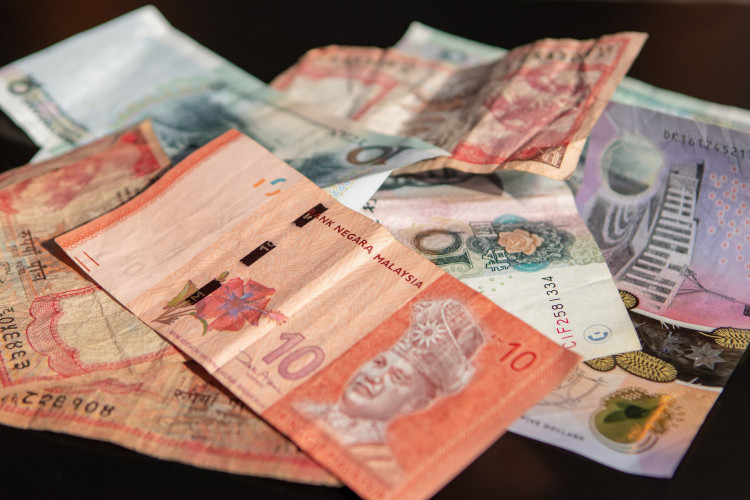Malaysia's currency Ringgit experienced a drop in crude prices with a measure of resilience. The currency may experience a widening fiscal deficit and rising political risks after it outperformed Asian currencies including the Indonesian rupiah and the Thai baht.
Slowing global economic growth and falling demand including a possible contraction in Malaysia's economy was reported to adversely affect the Ringgit more significantly than other currencies. According to Yahoo! Finance, the currency recently outperformed the Indonesian rupiah and the Thai baht during the first quarter.
The report, however, that the Ringgit may weaken soon and would test Malaysia's Prime Minister Muhyiddin Yassin after the controversial exit of his predecessor Mahathir Mohamad. The reduced currency value may also limit the ability of the country's central bank to ease the market and promote growth.
A prolonged period of depressed oil prices would adversely affect the Malaysian government's ability to increase its revenues that could significantly affect its currency value. Once the currency would decrease in value, the budget deficit would worsen and the preliminary forecast of four percent gross domestic product (GDP) may not be achieved this year.
The Malaysian central bank also expected crude oil to trade at 25 to 35 USD per barrel in 2020. Brent crude oil was expected to fall almost half of its value from 2019 at 30 USD per barrel at the start of 2020.
The Ringgit decreased to 4.4490 per dollar last March, its lowest value in two decades. The dollar-ringgit bullish momentum, however, would remain intact as it was tested at 4.25 last March 27. The test initial resistance was then tested at 4.4490, the currency's highest on March 23, in the near term. The report claimed that when the level would be breached, it may reach a peak of 4.5002.
Weakening domestic outlook that could undermine Malaysia's currency. The economic forecast for 2020 was between a contraction of two percent and an expansion of 0.5 percent caused by the pandemic financial effects. This was perceived to lower commodity prices as announced by the country's central bank last week.
Foreign exchange reserves data in March to be released soon would also show Bank Negara Malaysia's capacity to defend itself from the weakening Ringgit. At present, its holdings slumped by 103 billion USD as of March 13, its lowest yield since September 2019.
The report also claimed that political issues in the country could also adversely affect the country's currency value. Its parliament would resume this May and that shifting alliances and uncertain confidence votes for PM Muhyiddin may diminish the Ringgit in terms of governmental confidence.






